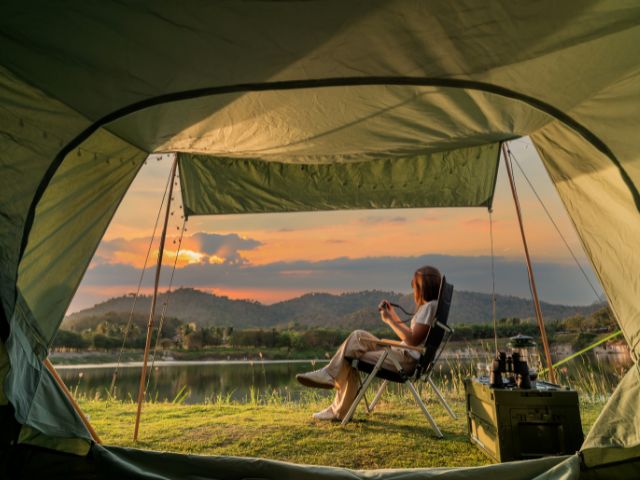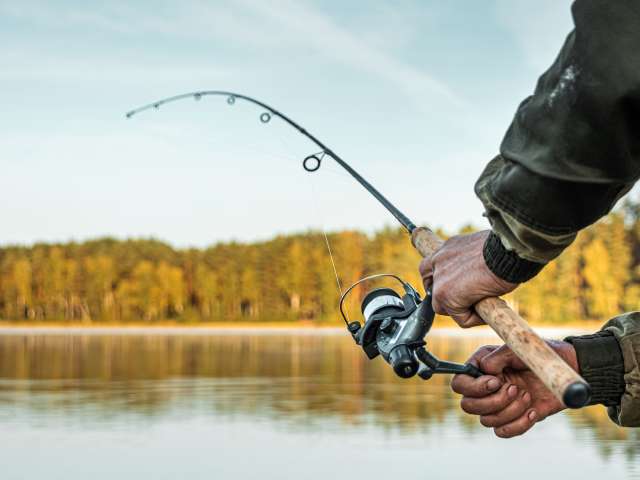Updated: Aug 4, 2023, 6:10 PM | By StateNewsJournal

I respond when nature calls! I’ve always been fascinated with the wonders of nature and the calming serenity that wildlife can bring. However, when venturing into these fragile ecosystems, we are responsible for minimizing our impact on the environment and the creatures that call it home.
I want to share five practical tips for making camping more comfortable without harming natural habitats or wildlife. These recommendations gear towards anyone looking to enjoy a cozy camping experience while remaining mindful of their surroundings and wildlife conservation.
Picking the right location for your campsite is the first and most crucial step for minimizing your impact on wildlife. Make sure to choose a well-known campground where they permit camping. After finding your ideal camping location, ensure you set a tent up at least 200 feet away from any water source, as animals tend to frequent these areas. Also, thoroughly assess your surroundings for any signs of wildlife activity and choose a site that avoids those areas.
While camping, storing food items and trash responsibly is critical to prevent attracting unwanted visitors. Invest in a bear-resistant food container if you’re camping in bear country and keep it away from your sleeping area. Refrain from leaving any food scraps or packaging behind, as they can harm wildlife and disrupt their natural feeding behavior.
Nothing beats the soothing tranquility of the great outdoors. It’s essential to keep noise levels to a minimum to maintain this peaceful environment and avoid disturbing wildlife. Instead of using speakers, consider enjoying nature’s soundtrack—the rustling of leaves, the chirping of birds, or the flowing water from a nearby stream. Let this be your customized mix instead of what’s in your phone’s music apps.
Consider investing in eco-friendly gear to enjoy a comfortable camping experience without negatively impacting the environment. Seek out durable, high-quality sleeping pads and bags that provide warmth and insulation while still being lightweight and compact. Additionally, opt for environmentally-friendly materials and products which minimize waste and work to reduce your ecological footprint. Since you likely need power on your camping trip, consider picking a solar-powered generator over a gas-powered one because it leaves less of an environmental impact.
Ensure you adhere to the Leave No Trace principles, including packing everything you brought in, respecting wildlife, and minimizing campfire impact. Following these guidelines will help preserve the area’s natural beauty and support the ongoing efforts toward wildlife conservation.
Learning how to comfortably camp in the wild while preserving nature’s beauty and wildlife habitats is achievable and rewarding. By incorporating these five tips into your next camping adventure, you will enjoy a cozy and memorable experience and help protect the delicate balance of our planet’s ecosystems. So, the next time you head out into the great outdoors, be mindful of your impact on the environment and wildlife—and let’s all do our part in supporting conservation efforts!
24World Media does not take any responsibility of the information you see on this page. The content this page contains is from independent third-party content provider. If you have any concerns regarding the content, please free to write us here: contact@24worldmedia.com


Industries Currently Relying on ....

5 Essential Tips on How To Hurri....

Mistakes To Avoid When You’re ....

The 5 Pieces of PPE Every Constr....

Lake Fishing: Tips and Tricks fo....

The Process Behind Custom Soleno....

Tips for Maintaining an Indoor P....

How To Know if Your Industrial F....